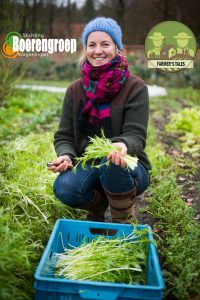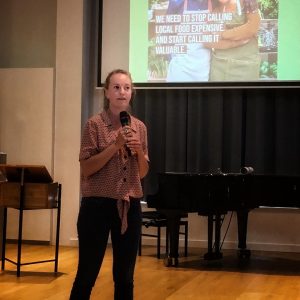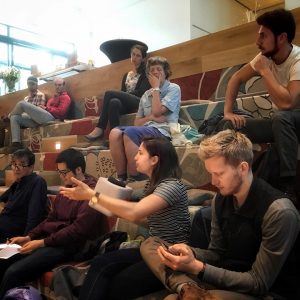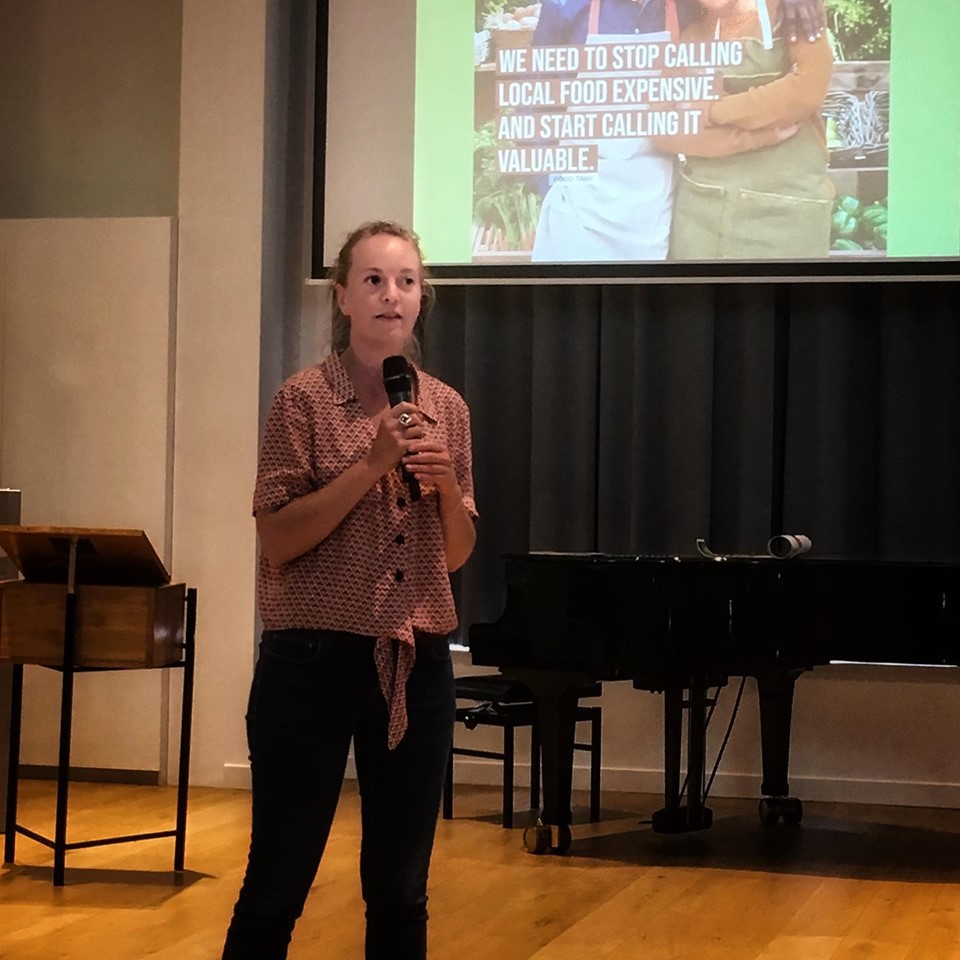Boerengroep decided to re-introduce the Farmers’ Tales! This is a platform for dialogue on the practices and politics, narratives and nuances of food production. It’s a place to meet up with other students, PhD’ers and researchers who are academically engaged with farmers worldwide. Next year, we plan to regularly have a farmer (or researcher) tell his tales at Impulse.
On the 6th of June – during lunch – we were proud to have Elske Hageraats talk about what she does and how she sees the world food problematic. Elske graduated at Wageningen with a Msc. Biology and Msc. Rural Sociology and decided to become a farmer. She now works full time at one-hectare garden Omuurde Tuin, where they grow over 400 varieties of vegetables, herbs and fruits – including some old varieties of the seed bank CGN. They sell their produce locally and via their ‘shareholders’ (85 veggy bags per week).
She explained the system of crop rotation that is used in the Ommuurde Tuin, whereby different plant families (legumes, strawberries, beans, root vegetables, cabbages, potatoes, salads, zucchini and so on) are laid out in a pizza shape of which the slices rotate each year. Then she talked about the importance of conserving different varieties of plants and how the Ommuurde Tuin is a place where traditional and innovative knowledge meet.
After this, we discussed the problem of how to eradicate world hunger. “How can we feed the world”, is a question often heard in Western countries. Elske problematized the “we” in this question and stated that it’s not so much that Western countries need to produce more to feed the world with our high-technological production system. Instead of this way of thinking, we should look at the causes of why the “world” can’t feed itself and find a solution to improve the livelihoods of rural communities, of whom 80 percent are farmers. Why can’t farmers today feed themselves? The answer reveals an economic problem instead of a technological one.
It was a very interesting lecture and discussion that followed, and we had a lot of positive feedback from the audience about our first Farmers’ Tales. Therefore, we would love to continue this concept next academic year. If you know an interesting farmer or researcher to invite, or if you yourself have something fascinating to say about farming-related questions: please let us know! You can always send an email to st.boerengroep@wur.nl .




